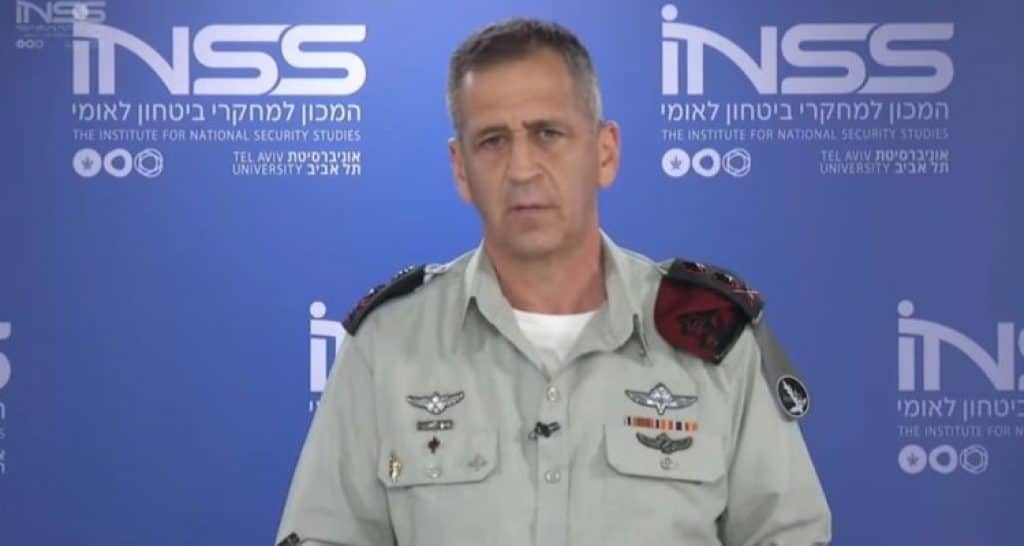
On Tuesday, Israel Defense Forces (IDF) chief of staff Aviv Kochavi warned that a return to the Iran deal would be unacceptable and hinted of possible military action against Iranian nuclear sites. Kochavi also detailed the IDF’s response to a potential conflict with Iranian-backed militant groups in Lebanon, Syria and Gaza.
Speaking at an Institute for National Security Studies (INSS) conference, Kochavi made an unexpected statement about re-entry by the Biden administration into the Joint Comprehensive Plan of Action (JCPOA), commonly referred to as the Iran nuclear deal.
“I would like to clarify my position regarding the JCPOA: Even if an improved agreement is reached, it will be a bad agreement at the operational and strategic level. Therefore, such an agreement must not be enabled,” Kochavi said.
The renouncement of the JCPOA by one of Israel’s top military officials is remarkable and breaks with assessments made by former Israeli defense officials who’ve previously supported the deal. It also signals that efforts made by the Biden administration to revive the nuclear deal could ultimately be rebuffed by Israel, thus leading to a possible military confrontation with Iran.
Furthermore, adding to the probability of a military confrontation, Kochavi stated he had instructed the Israeli military to ready operational plans to strike Iran’s nuclear facilities in the event that a political solution failed to stop Iran from building a nuclear bomb.
“I have instructed the IDF to prepare several operational plans in addition to existing ones, which we will develop throughout the coming year. The power to initiate them lies with the political echelon. However, the offensive options need to be prepared, ready and on the table,” he stated.
Kochavi also warned that militant groups such as Hezbollah and Hamas were using the civilian population to shield their military infrastructure and weapons. Kochavi then detailed the IDF’s response against militant assets by saying it would strike launchers hidden inside civilian homes in order to prevent harm to Israeli citizens.
“The enemy chose to entrench itself and its weapons, including missiles and rockets, in urban areas. Striking a single missile launcher embedded inside or next to a populated house will prevent damage to an apartment building in Israel, and thus prevent harm to scores of Israeli civilians,” Kochavi said.
Israel could find itself in an unfavorable position
Despite Kochavi’s critical views about the nuclear deal with Iran, it would be in the interest of Israel to publicly support the Biden administration’s efforts – even if a deal isn’t ultimately reached – one that satisfies it and that of its allies in the Gulf, including Saudi Arabia.
By opposing a renewed nuclear deal Israel risks isolation and may find itself in the unfavorable position of attacking Iran’s nuclear infrastructure without its chief ally, the United States. Although Israel has had success in operating independently in military theaters such as Syria, some of its most successful operations have come from military cooperation and the sharing of intelligence with the United States. [See FDD’s Long War Journal report, Chief Iranian nuclear scientist Mohsen Fakhrizadeh assassinated near Tehran.]
Over the coming months Israel’s political echelon will have to decide if it will publicly support the Biden administration’s attempts to reach a renewed nuclear deal with Iran or continue to reject it and further position itself for a probable confrontation that may leave it in an isolated position to launch an attack with little guarantee of a successful outcome.







